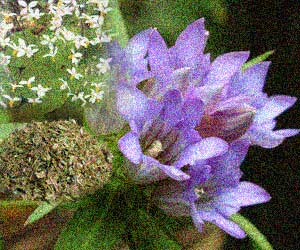
In traditional cultures, goat weed is used as natural aphrodisiacs. Researchers now claim that the soft green heart shaped leaves of the plant could actually rekindle your sexual desires.
The research was carried out by a team of Italian scientists at the University of Milan and led by Mario Dell’Agli. The group tested four plants known to be natural aphrodisiacs. These plants were examined for phosphodiesterase-5 (PDE5). PDE5 is an enzyme that promotes male erection and common anti-impotence drugs inhibit this enzyme.
Dell’Agli mentioned, “If people eat horny goat weed, I think they’ll surely benefit from it.â€
A close analysis of these plants revealed that only one of the four plants had the ability to inhibit PDE5. The plant was Epimedium brevicornum, commonly known as horny goat weed. What was even more interesting was that the main compound in horny goat weed, icariin, functioned just as well as Viagra, the signature anti-impotence pill. In comparison goat weed also has an added benefit- the herbal drug comes minus any adverse side effects.
Regular anti-impotence pills are widely known fact to have harmful side effects. The main compound of these pills is an active substance called sildenafil. Along with PDE5s that are associated with male erection, the compound inhibits other PDE5s as well. This includes some that are essential to sight and heart function. Hence people at high heart risk and those with troubled vision are advised not to take such drugs.
A medical definition of erectile dysfunction is the combination of a total inability to achieve erection along with an inconsistent ability to do so or a tendency to sustain only brief erections. The problem supposedly increases with age and affects nearly 50% men between the ages of 40 to 70.
The study is due to be published in the October 24th, 2008 issue of the Journal of Natural Products.

